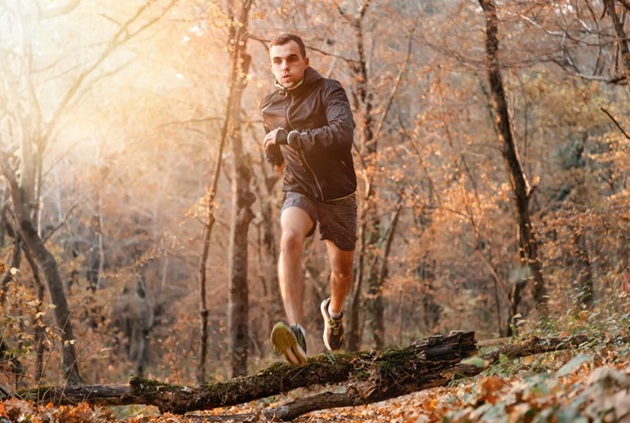From Zero to Hero: How to accelerate your new year’s training and avoid injury
It’s a familiar story. You’re booked on the next London marathon or Spring triathlon. So far, you’ve stayed focused, stuck to the training plan and met your goals. But then Christmas looms and, before you know it, you’re swapping early mornings on the tarmac for late nights in the Square Mile. And training takes a back seat.
By the time you’ve made it through the festive season, you’ll probably have enjoyed a bit more of that ‘well-deserved break’ than you intended. Your general pace will be slower, muscles may feel softer, and tendons tighter. Your hi-tech, sweat-wicking running gear might even fit more snugly than before.
From boom to bust – and back again
By January, many people are itching to get back on track and start hitting their targets in time for Spring. The trouble is, launching straight into a rigorous training programme after a long festive rest can be a shock for a body that’s been enjoying sofas, slippers and sloe gin for a few weeks. In fact, the risk of injury rises every January for runners and triathletes. So says Dr Rick Seah, Consultant in Musculoskeletal, Sports & Exercise Medicine at the Institute of Sport, Exercise & Health (ISEH) and The Wellington Hospital, both part of HCA Healthcare UK.
"Stress fractures of the shin and metatarsals are common at this time of year," he says, "because exercise regimes go from boom to bust in a few weeks. Those dips into inactivity, followed by intensive training, put a lot of stress on the bones, which can cause tiny fractures to develop over time. The person may experience pain, swelling and muscle tenderness during training, that continues into periods of rest."




To make matters worse, a serious sporting injury like this will send people straight back to the sofa with an aircast boot, crutches and a slow rehabilitation journey – frustrating any further fitness plans.
At the ISEH, where Dr Seah regularly treats this kind of injury, he works with a team of sports and exercise experts to deliver a full diagnostic and treatment programme that includes physiotherapy, hydrotherapy, podiatry, exercise therapy, nutrition and more. "These injuries that can have long term consequences if they’re not addressed in time," he warns.
Learn how to keep injury at bay
So how do you keep up the training, while protecting yourself from injury? Dr Seah says it’s what you do over the holidays that counts. "The problem is, people either stop exercising completely – or they use all their free time to launch into a brand new fitness routine before they’re ready."
"Pacing is everything," he explains. "Ideally you want to keep your exercise routine ticking over during the holiday. Aim for about 50% to 75% of what you would normally do, rest on alternate days, and include lots of warm-ups and stretching." Dr Seah explains it’s all about giving the body a chance to slow down and recover – without losing condition.
He also advocates cross training as a way of building resilience to injury. "It’s important to include flexibility, strength training and stability work into your routine. That could be reformer pilates, yoga, indoor cycling during the colder months, or swimming – a great option for all over body conditioning."
How to train safely
So, what tips would Dr Seah offer anyone training for their first marathon or triathlon in the Spring? He advises getting into a weekly routine and building up slowly. That might include following a good, standardised training plan, which you can find online. "It’s also a good idea to train with an experienced runner who can spot any issues," he says. "And then, it’s really about keeping yourself in good health. Making sure you’re stretching, resting, staying hydrated and eating a varied diet with plenty of carbs and protein for tissue repair and calcium for bone health."
If pain and injury do strike, Dr Seah says, it’s important to recognise when the pain stops you from participating and see a sport and exercise doctor or physiotherapist to get some advice and early treatment. Often that can be enough to keep injury at bay.
Any last tips? Dr Seah says choosing a good, supportive pair of running shoes is vital for protecting the whole body and preventing injury. Now there’s a good idea for your Christmas list.
Find out more about our services for acute injuries or to book an appointment, contact us on 020 3733 5966



